
THREAD: bullish or bearish chinas market...
LifeLine™ Media threads use our sophisticated algorithms to construct a thread around any topic you want, providing you with a detailed timeline, analysis, and related articles.
News Timeline


TRUMP’S “Liberation DAY” Shocks Markets: Wall Street Reels as Tariffs Spark Global Showdown
— President Trump’s “Liberation Day” tariffs have rocked the markets. The Dow dropped more than 2,000 points on some days. The S&P 500 and Nasdaq both fell into bear market territory. These tariffs, reaching up to 125% for some countries, are the highest seen in a hundred years. China, the EU, and Japan are feeling the pain most. China hit back with its own tariffs on American goods. Japan’s finance minister warned of global trouble ahead. Still, US officials say they’re hopeful about future trade talks. Big companies are taking hits too. CarMax shares sank after weak earnings reports. Nvidia tumbled more than 20% from its high point this year. UnitedHealth lowered its profit forecast because Medicare costs keep rising. Experts think this wild ride will last until trade fights settle down. Some industries are holding up better than others under pressure. The Federal Reserve might cut rates three times this year if things get worse — some warn a financial crisis could happen if tariff chaos continues much longer.

TRUMP’S Tariff CUT Sparks Stock Market Surge
— In a bold move, President Donald Trump announced a temporary cut in tariffs for many countries, while raising them for China. This decision caused U.S. stock indexes to soar, with the S&P 500 seeing its biggest gain since 2008, closing 9.5% higher. Trump’s tariff strategy aims to increase pressure on China amid ongoing trade tensions.
The announcement led to a sharp drop in the Cboe Volatility Index (VIX), which fell by 15 points to 37.2 after news of a 90-day tariff pause for most nations. However, China’s response was quick as they imposed an 84% retaliatory tariff on U.S. goods following the new U.S. levy on Chinese imports that took effect at midnight. This escalation adds uncertainty to global markets despite the initial boost in U.S stocks.
Meanwhile, on the home front, the U.S government has started monitoring immigrants’ social media accounts for signs of antisemitism as part of enhanced security measures. This initiative reflects growing concerns over hate speech and its potential impact on national security and social cohesion within immigrant communities across America.;

STOCK MARKET Chaos: US Faces Economic Fears as Tariffs Loom
— U.S. stocks took a nosedive today as President Donald Trump’s “Liberation Day” approaches, bringing potential tariffs on Canadian steel and aluminum imports. Analysts warn these tariffs could trigger a market downturn and increase recession risks. Wolfe Research has already revised U.S. growth estimates for 2025 down to 1.6%.
Retail giant Kohl’s experienced its worst trading day since 1992, with stocks tumbling by 26% after issuing disappointing guidance for the year. Investor anxiety is also heightened by an upcoming House vote on a stopgap funding bill, adding to market volatility.
The Dow Jones Industrial Average has fallen 8.3% from its peak, raising concerns about the tech sector’s performance compared to the S&P 500. Investors are bracing for further shifts as policy decisions unfold in the coming days amid fears of reduced earnings across sectors due to new tariffs and declining consumer confidence.

TRUMP’S Targeted Tarif Plan Ignites Stock Surge
— Global stocks soared on Monday, fueled by gains in U.S. markets. Reports suggest President TRUMP’s tariff strategy is more targeted than expected, boosting investor confidence and risk appetite.
U.S. Treasury yields rose with the optimistic outlook on tariffs. Investors hope a targeted approach will ease potential economic disruptions. The market’s reaction shows strong support for Trump’s strategic trade policy shift.
Meanwhile, the IRS expects a significant drop in tax revenue — over 10% by April 15th — according to the Washington Post. This decline raises concerns about fiscal health and future government funding.
In currency markets, the dollar strengthened against both the euro and yen as U.S. business activity improved in March. Bitcoin analysts predict a potential surge to $110K before any major correction, reflecting ongoing interest in cryptocurrency markets.
:max_bytes(150000):strip_icc()/GettyImages-2204542885-111eebb0d66b4ccdb80baeba920b68a8.jpg)
SENSEX SOARS: 3,000-Point Rally Ignites Investor Hope
— The SENSEX has soared over 3,000 points in just five sessions, marking its best week in four years. This impressive rally is fueled by cooling bond yields and a stronger rupee. Increased foreign investor interest also plays a key role in this upward trend.
Analysts urge investors to stay engaged and see market dips as chances for long-term growth. They warn of short-term volatility that might affect immediate gains. Vinod Nair from Geojit Financial Services highlights that improving domestic indicators are encouraging investors to seize bargains despite global uncertainties.
This surge shows significant market activity and investor sentiment in the Indian stock market. The unusual upward trend suggests optimism among investors amid strong earnings expectations. Staying informed and cautious remains crucial for navigating these financial waters effectively.

HONG KONG Surge Ignites Asian Market Boom
— Hong Kong is leading a major surge in Asian markets, sparking excitement and strong trading. Big gains are seen in Japan, India, and Malaysia. Indonesia trails slightly behind.
This market shift lines up with possible geopolitical changes, including hints from former President Trump about a potential visit from President Xi to Washington DC. Such moves could impact international relations and economic plans.
China’s tech giants like Alibaba and Tencent are seeing big gains thanks to positive domestic consumption outlooks. This growth shows the strength of China’s tech sector amid global uncertainties.
NIO’s partnership with CATL signals more growth in the tech industry, boosting investor confidence across Asia. The collaboration highlights the region’s focus on innovation and technological progress.

TRUMP’S Bold Move: How NEW Tariffs Rattle the Stock Market
— U.S. stocks fell sharply as President Donald Trump’s tariffs on Canada and Mexico took effect, sparking economic fears. Investors worry about the potential impact amid existing uncertainties. Analysts warn of a possible recession, urging caution in market activities.
The S&P 500 and Nasdaq composite saw major drops, hitting technology stocks hard. Companies across sectors are revising forecasts due to these new trade policies. Experts suggest these tariffs could worsen inflation and reduce consumer spending soon.
These tariffs are part of Trump’s broader trade agenda to boost U.S. manufacturing but risk retaliatory actions that may harm American businesses and consumers. The market remains bearish as analysts closely watch for policy fallout effects.

SENSEX SURGE: Investors Cheer as Market Confidence Grows
— The SENSEX index opened at 74,474.98 on March 9, 2025, marking a positive start to the trading day. This opening was slightly above its previous close of 74,332.58, signaling growing investor trust in the market’s stability.
As trading progressed, the index gained over 350 points, hitting a high of 74,713.17. This upward trend shows optimism among investors and suggests a strong economic outlook for India.
Growth in the SENSEX is often seen as an indicator of economic health and can positively influence global markets. Investors will be closely watching to see if this momentum continues in the coming days.

METAL STOCKS Soar: Investors Cheer Global Demand Boom
— METAL stocks like Tata Steel, Hindalco, and Vedanta are seeing a rise of up to 4% in share prices. This jump is due to favorable global market conditions and increased demand for metals. Investors feel hopeful about the sector’s future.
Tata Steel shares have climbed about 4%, thanks to positive quarterly results and higher production forecasts. Hindalco gains from rising aluminum prices and a brighter outlook as global demand increases.
Vedanta’s shares are also climbing because of strong performance and smart strategies to boost production efficiency. These companies’ gains show broader economic conditions that favor raw material demand.
Market experts point to international trade dynamics, better supply chains, and more infrastructure spending worldwide for this bullish trend. These factors boost investor confidence in METAL stocks amid growing global need for raw materials.
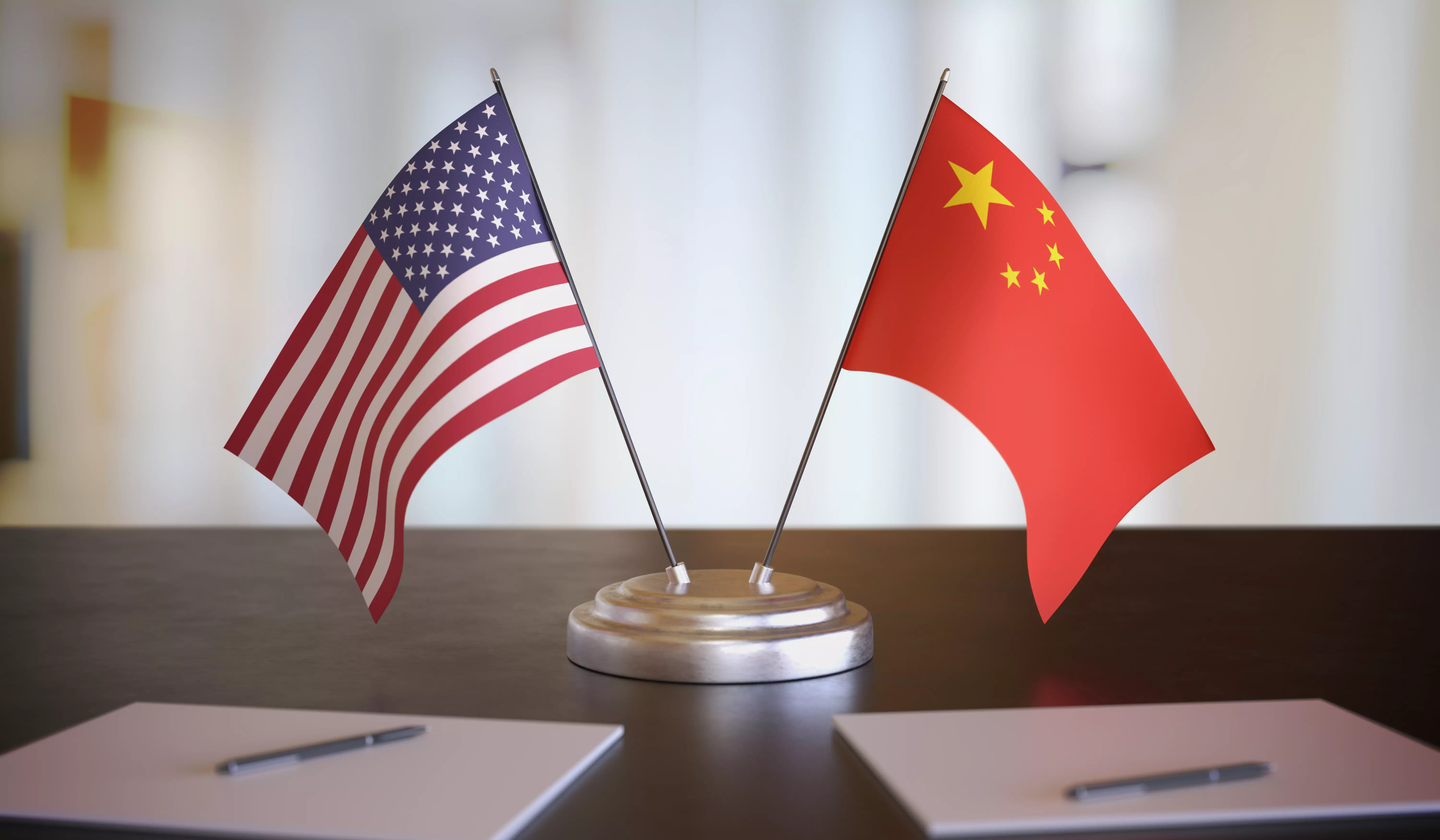
CHINA WARNS of Escalation Over US Tariff Moves
— China has issued a stern warning in response to recent U.S. tariff challenges, signaling potential escalation if tensions continue. A Chinese official stated that the situation could worsen dramatically if provoked further by the United States. Beijing remains committed to supporting its economy while criticizing U.S. actions as aggressive and harmful to international trade relations.
TAIWAN RALLIES UKRAINE SUPPORT Against CHINA THREATS
Taiwan is reportedly teaming up with Ukrainian companies to develop contingency plans due to rising tensions with China. This strategic move aims at bolstering Taiwan’s defenses and ensuring economic stability against potential threats from mainland China.
CONGO VIOLENCE SURGES, Raising HUMANITARIAN ALARMS
The conflict in the Democratic Republic of the Congo has intensified significantly, raising alarms over worsening humanitarian conditions. Local reports highlight increased violence, prompting international scrutiny of the situation’s impact on civilians.
South Sudan faces political turmoil following the arrest of a key military leader, confirmed by a vice-presidential spokesperson. This development threatens the country’s fragile peace deal amidst ongoing internal conflicts and power struggles. These stories underscore current geopolitical challenges as of March 5, 2025, reflecting a dynamic landscape

CHINA STRIKES Back: US Farmers Face Uncertain Future in Trade WAR
— China swiftly hit back at new U.S. tariffs by imposing higher import taxes on $21 billion of American agricultural goods. This move ramps up tensions between the world’s two largest economies, edging them closer to a trade war.
Despite the increased tariffs, China’s futures markets stayed steady, showing strength amid this economic clash. The Chinese government has stated it won’t be cowed by these new actions from the Trump administration.
This situation highlights the growing economic rivalry and its impact on global trade relations, especially in agriculture — a vital sector for both countries. As this dispute unfolds, American farmers might struggle to keep their export markets in China.
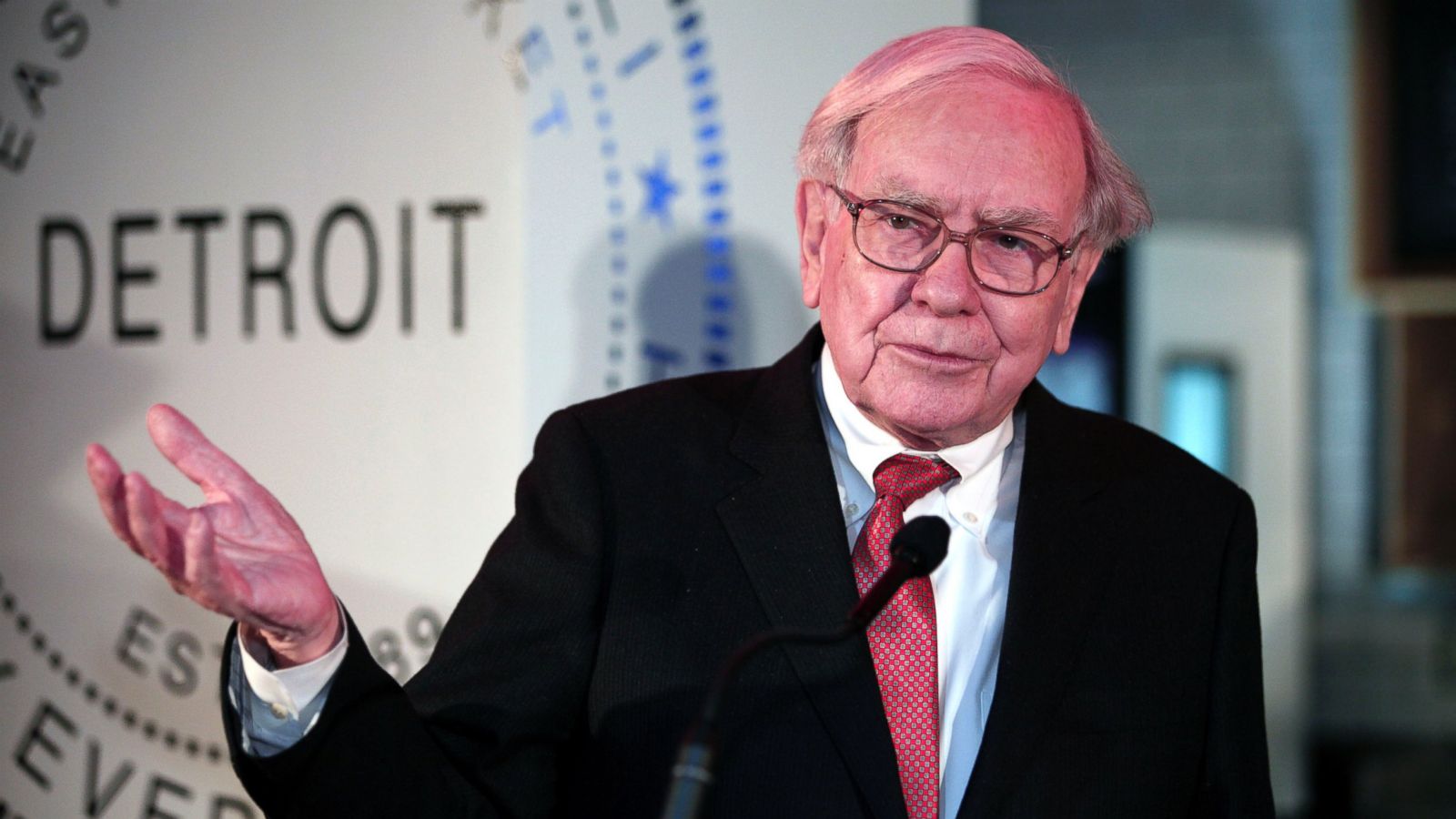
WARREN BUFFETT’S Bold Moves in a Chaotic Economy
— Warren Buffett, the billionaire investor, is taking a careful approach in today’s economic climate. He has trimmed Berkshire Hathaway’s equity portfolio and boosted investments in Treasury bills. This strategy shows caution as financial markets face turmoil.
Berkshire Hathaway has also changed its focus on diversity and inclusion. The company removed these topics from its annual report, joining other American firms rethinking their stance on such issues. Instead, the report highlights human capital and practices for attracting and keeping employees across its 189 businesses.
Buffett’s annual letter to shareholders remains a key source of investment wisdom. Investors watch these letters closely for insights into his strategies and market views. His guidance continues to influence many in the financial world, stressing long-term value over short-term gains.
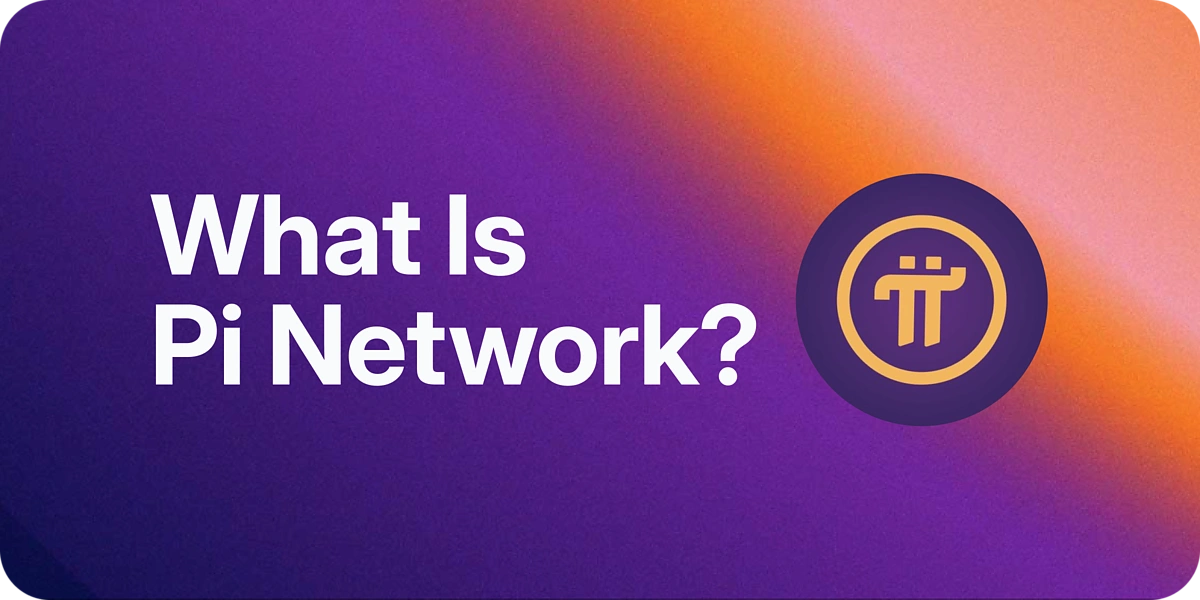
PI COIN’S Astonishing Rebound: What Investors Need to Know
— Pi Coin has made a surprising comeback, jumping 73% after its initial crash. It’s now trading at $1.24, with a market cap hitting $8.6 billion. This quick recovery is turning heads in the crypto world.
Thangpandi Durai, CEO of Koinpark, stresses that for Pi Coin to thrive long-term, ecosystem adoption is key. He points out that governance, security, and real-world use are crucial for steady growth.
Durai urges investors to do their homework before diving into Pi Coin investments. Ensuring it fits their financial goals and risk tolerance is vital in the unpredictable crypto market.
:max_bytes(150000):strip_icc()/GettyImages-2192142603-a439d21d07ef4ace9708e5f08f188b0b.jpg)
CHINA’S Tech Boom: How Deepseek AI is Shaking Global Markets
— China’s tech industry is booming, thanks to the rise of the DeepSeek AI model. Major companies like Alibaba, Baidu, and Xiaomi are seeing big benefits. This surge has pushed Hong Kong’s Hang Seng Tech Index up this year.
Alibaba, co-founded by Jack Ma, stands out in this market rally. The company’s growth shows the broader impact of tech advancements on China’s economy. Investors are watching these changes for possible global effects.
The rise in China’s tech stocks might affect U.S. investments and international trade ties. As U.S. markets close with small changes in the S&P 500, global investors keep an eye on shifts in Chinese tech trends.
This ongoing rally highlights China’s growing influence on worldwide economic dynamics, making it a key player to watch in global markets.
/Super%20Micro%20Computer%20Inc%20HQ%20photo-by%20Tada%20Images%20via%20Shutterstock.jpg)
SUPER MICRO Stock Skyrockets: Investors Cheer Bold 2026 Goals
— Super Micro’s stock jumped after the company set bold goals for 2026, calming investor worries about its future. Despite controversies and a Department of Justice probe into its accounting, Super Micro is working to stabilize. The company hired a new accountant and announced an independent review found no wrongdoing.
Nasdaq gave Super Micro more time to submit filings by February 25, which the company plans to meet. This extension follows a tough year with challenges noted in the Hindenburg report. Investors reacted positively to these updates, causing stock prices to soar after the business update on February 11.

TECH GIANTS Spark Stock Market Surge: What Investors Need to Know
— The STOCK MARKET is seeing a surge, with predictions of a 0.49% rise. This optimism comes from major tech companies, whose earnings reports are expected to beat estimates. Investors are eagerly awaiting these results, fueling excitement across the market.
However, concerns about rising interest rates could dampen this enthusiasm. While the outlook remains positive now, potential rate hikes might impact investor sentiment soon. Market participants stay cautious as they navigate these mixed signals.
Besides stock market news, debates continue over a new lunch plan proposed by a coalition that may affect small businesses’ futures. Stakeholders are split on the possible effects of these changes, highlighting ongoing challenges in balancing economic growth with regulations.

CHINESE AI Revolution: DeepSeek’s Shockwave Hits US Tech Giants
— A new force in artificial intelligence, DeepSeek from China, is shaking up major U.S. tech firms. Their latest AI model, DeepSeek-R1, rivals top U.S. products like OpenAI’s GPT-4 and Google’s Gemini but at a fraction of the cost. This move challenges American dominance and has triggered a massive selloff in tech stocks.
Launched on January 20, 2025, DeepSeek-R1 boasts impressive performance with lower training costs than competitors. Nvidia faced a record market cap drop of over $500 billion — the largest single-day loss in U.S. stock market history — due to this launch. Experts are both amazed and skeptical about DeepSeek’s cost claims, sparking debate on future AI investment strategies.
DeepSeek’s CEO Liang Wenfeng has held closed-door meetings with Chinese leaders to discuss global tech competition implications from their advancements. The rapid rise of DeepSeek has sparked talks about traditional tech investment sustainability and potential industry shifts needed moving forward. Consumers are also interested, as the DeepSeek app topped download charts in both U.S. and China App Stores shortly after release.;

CHINA’S AI Threat: Tech Stocks in Danger of $1 Trillion Wipeout
— Chinese AI startup DeepSeek has shaken global tech stocks, sparking fears about America’s technological advantage. Investors worry about a potential $1 trillion loss in tech value due to rising foreign competition.
The drop in tech shares shows growing concern over the competitive landscape. Major indices have fallen, urging investors to be cautious as the situation develops.
This happens amid wider talks on global trade and economic competitiveness, especially in tech-heavy areas. Experts recommend reassessing portfolios, favoring stable investments over risky tech stocks.
Market analysts emphasize watching these changes closely as they could affect market stability and growth prospects in the technology sector moving forward.
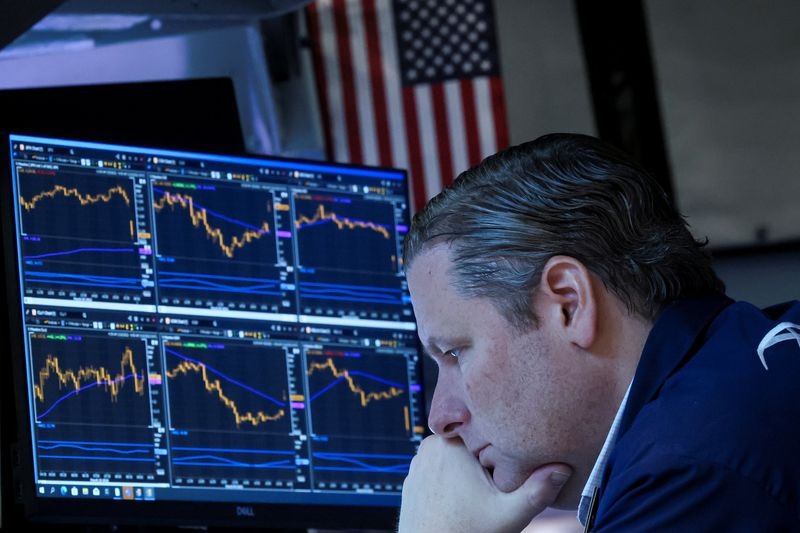
STOCK MARKET Chaos: Inflation Fears Shake Investor Confidence
— The U.S. STOCK market took a big hit today, with major indexes dropping over 3% due to rising inflation fears. Investors worry about possible Federal Reserve policy changes after high inflation numbers came out earlier this week. This is one of the steepest drops in months, shaking confidence that had been boosted by strong job reports.
Bond yields are up, with the 10-year Treasury bond yield hitting about 4.1%, its highest since late 2023, signaling increased inflation expectations. Big tech stocks like Apple and Microsoft saw sell-offs over 5%, adding to the market slump. Analysts warn that ongoing inflation might push the Federal Reserve to rethink interest rate policies, possibly leading to more hikes instead of cuts.
The decline comes after a strong holiday shopping season that initially suggested steady economic growth but is now overshadowed by ongoing inflation problems. Retail and consumer sectors face rising costs and reduced spending, making investors cautious in these areas. Companies like Walmart and Target report higher holiday sales but shrinking profit margins due to inflation pressures, prompting them to rethink annual forecasts.
Banks like JPMorgan are bracing for possible loan defaults as consumers struggle with higher living costs by setting aside more reserves. Market analysts expect continued volatility as investors digest new inflation data and Fed policy implications.;

WALL STREET Surges: Oil Price Drop Sparks Investor Optimism
— Wall Street is climbing today, driven by a 6% DROP in oil prices. Investors are gearing up for a crucial week of earnings reports from major tech firms.
Tech and energy stocks are leading the way, with analysts hopeful about tech giants’ futures. However, there is still caution about the overall economic outlook.
The fall in oil prices comes from oversupply worries and easing geopolitical tensions, affecting inflation rates and consumer spending that Wall Street closely monitors.
While U.S. markets rise, Asian markets face recession fears linked to U.S. economic performance, showing global interconnectedness and financial volatility.

— Dow Soars 300 Points, Closes Above 44,000 for the First Time The stock market rally is fueled by renewed enthusiasm surrounding former President Trump’s policies

— China Prepares for Key Week Amid US Elections and Stimulus Anticipation Markets are closely watching as China braces for significant developments related to the upcoming US elections and potential economic stimulus announcements

— S&P 500 RISES NEARLY 1% as Cooler Oil Prices Boost Market The Dow gained 100 points, reflecting positive investor sentiment amid declining oil prices

— S&P 500 and Nasdaq End Eight-Day Winning Streak Amid Pause in Rebound Rally Major US stock indices, S&P 500 and Nasdaq, halt their consecutive gains after an eight-day winning streak

— Stocks Stage Impressive Recovery, Recouping Weekly Losses: Market closes higher, bouncing back significantly from Monday’s sell-off

Video
GLOBAL ELECTIONS Shock: What’s at Stake for Iran, Britain, and France
— Over the next week, voters in countries like Iran, Britain, and France will head to the polls. These elections come at a critical time with global tensions high and public concerns over jobs, climate change, and inflation.
In Iran, Supreme Leader Ayatollah Ali Khamenei seeks a successor for President Ebrahim Raisi following his recent death. Candidates include hard-liners Saeed Jalili and Mohammad Bagher Qalibaf as well as reformist Masoud Pezeshkian.
These elections could significantly impact global politics amid ongoing wars in Europe, the Middle East, and Africa. The outcomes may reorient international relations during this period of mutual suspicion among major powers.
More Videos
Invalid Query
The keyword entered was invalid, or we couldn't gather enough relevant information to construct a thread. Try checking the spelling or entering a broader search term. Often simple one-word terms are enough for our algorithms to build a detailed thread on the topic. Longer multi-word terms will refine the search but create a narrower information thread.
Politics
The latest uncensored news and conservative opinions in US, UK, and global politics.
get the latestLaw
In-depth legal analysis of the latest trials and crime stories from around the world.
get the latest

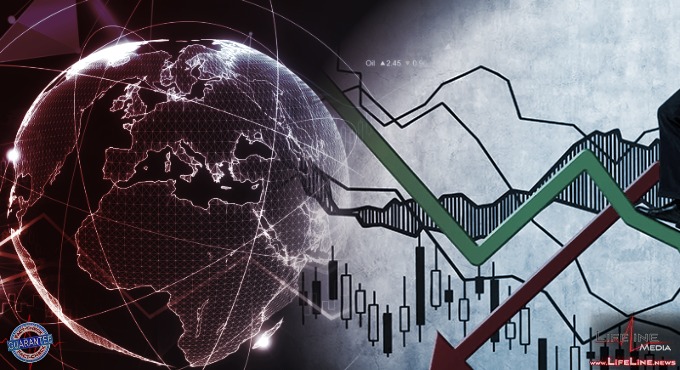

Social Chatter
What the World is Sayingwww.cnbc.com/2023/01/16/as-china-reopens-and-data-surpris... As China reopens and data surprises, economists are starting to get less gloomy ▫️ Barclays on Friday raised its global growth forecast to 2.2% in 2023, up 0.5 percentage points from its last estimate in mid-November. ▫️ Berenberg also ...
. . .www.cnbc.com/2023/01/16/as-china-reopens-and-data-surpris... As China reopens and data surprises, economists are starting to get less gloomy ▫️ Barclays on Friday raised its global growth forecast to 2.2% in 2023, up 0.5 percentage points from its last estimate in mid-November. ▫️ Berenberg also ...
. . .www.cnbc.com/2023/01/16/as-china-reopens-and-data-surpris... As China reopens and data surprises, economists are starting to get less gloomy ▫️ Barclays on Friday raised its global growth forecast to 2.2% in 2023, up 0.5 percentage points from its last estimate in mid-November. ▫️ Berenberg also ...
. . .www.cnbc.com/2023/01/16/as-china-reopens-and-data-surpris... As China reopens and data surprises, economists are starting to get less gloomy ▫️ Barclays on Friday raised its global growth forecast to 2.2% in 2023, up 0.5 percentage points from its last estimate in mid-November. ▫️ Berenberg also ...
. . .www.cnbc.com/2023/01/16/as-china-reopens-and-data-surpris... As China reopens and data surprises, economists are starting to get less gloomy ▫️ Barclays on Friday raised its global growth forecast to 2.2% in 2023, up 0.5 percentage points from its last estimate in mid-November. ▫️ Berenberg also ...
. . .